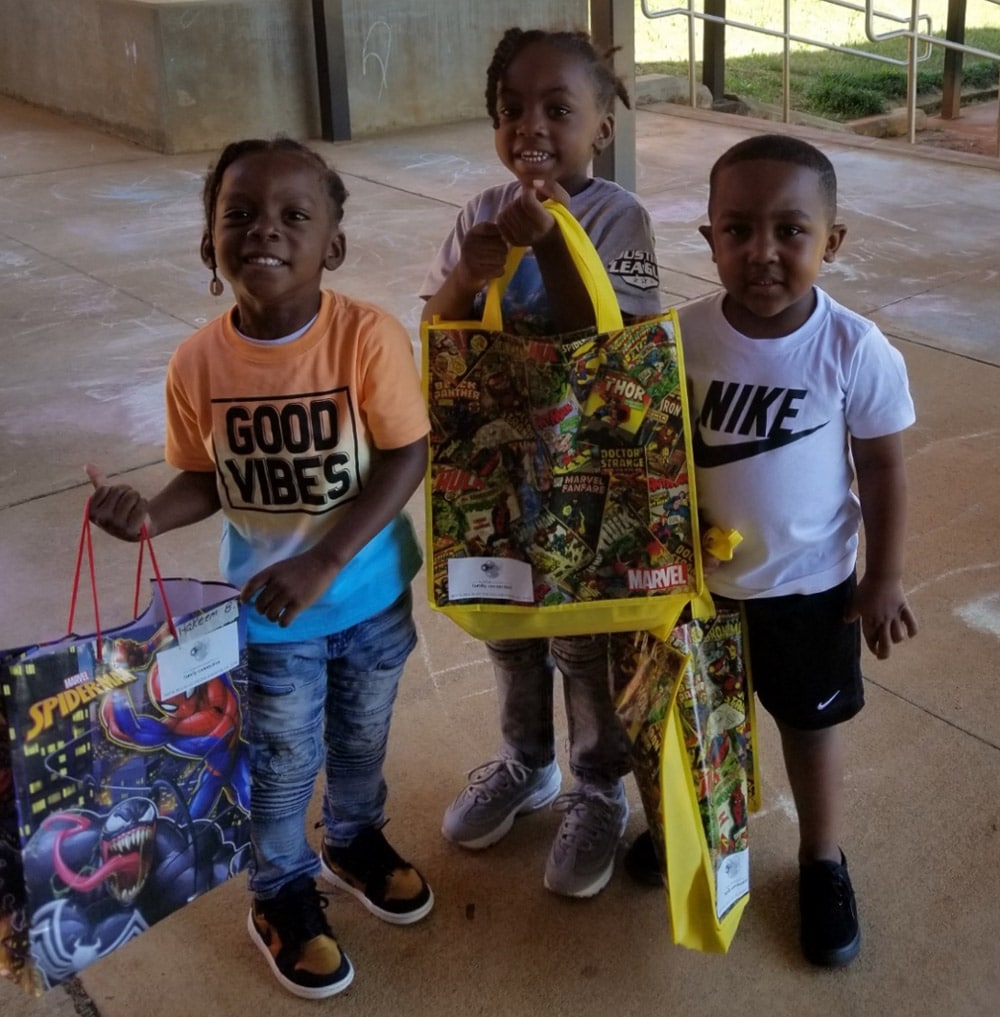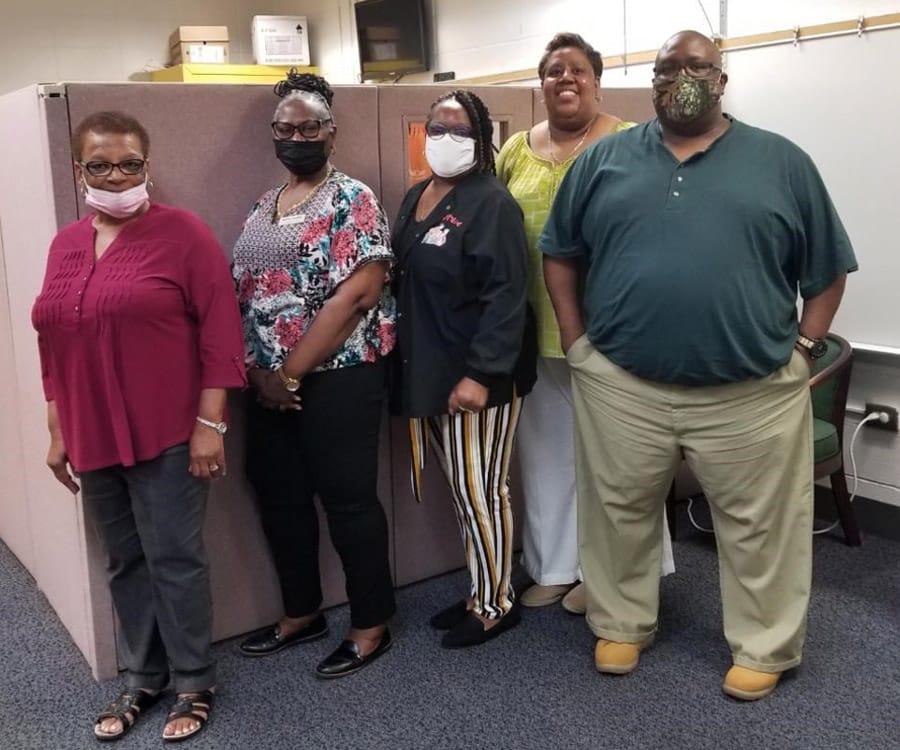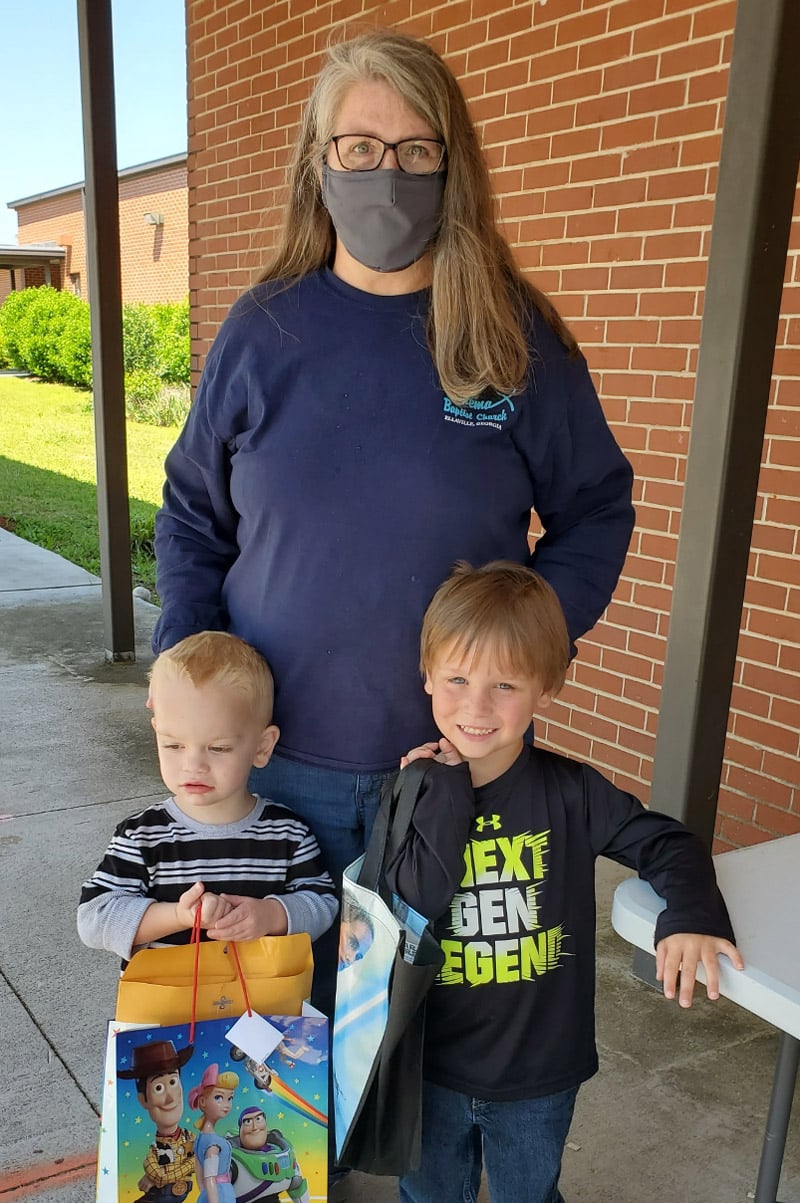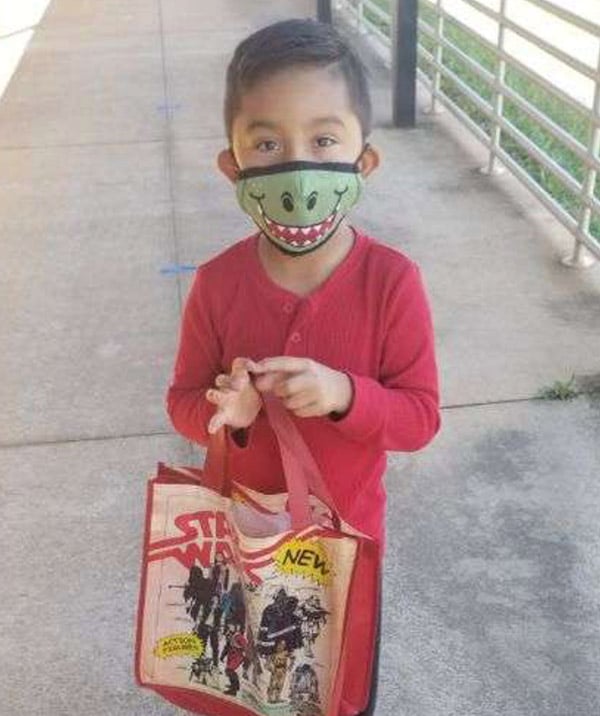Sumter County Working Together for a Common Cause—Their Kids
Print This Post
by Madeline Zupko
“How can I help my child?”
This is the question from parents who lost jobs or homes, struggled to find child care when schools closed, or dealt with internet issues trying to log their kids into virtual classrooms during the pandemic that prompted a call to action among community members in Sumter County.
“Embedded obstacles persist here, even when services are theoretically available and affordable to all families,” said Sheila Hambrick, Sumter County Family Connection coordinator. “Poverty, geographic isolation, cultural and ethnic differences, lack of transportation, low literacy, food deserts, and inadequate knowledge regarding the need for—or availability of—health services are barriers to health and social services for the unserved and underserved in Sumter County.”
The barriers families in Sumter County are up against overlap and are intertwined. When parents struggle, their children struggle as well. Sumter County’s poverty rate is 26.7%, which is two times higher than Georgia’s average.
Get Georgia Reading—Campaign for Grade-Level Reading selected Sumter as a pilot county for the Get Georgia Reading at Home initiative to enhance children’s essential skills through everyday learning. The Family Connection Collaborative has partnered with Sumter County Early Head Start and Sumter County Primary School to provide in-home resources to vulnerable families that live in communities with low broadband access and a high prevalence of COVID-19 infection.
“It’s such a blessing that we received this grant,” said Hambrick. “We collaborate with the community as a whole, working together for a common cause, because we want our families and our babies to thrive. We just have to keep pushing, keep looking, keep researching, and keep educating.”
The Collaborative and Sumter County Head Start, through the Get Georgia Reading at Home grant, distributed take-home activity kits to families most in need of the five developmental areas to a child’s development—cognitive, physical, language, social, and emotional. Each kit was filled with books and coloring books, pencils, paint sets, crayons, and flash cards. Families also received a copy of the Get Georgia Reading at Home Milestone booklet, which provides parents with a better understanding of their child’s developmental levels.

The Head Start program was targeted to receive the activity kits due to the importance of introducing education to young children, as the brain undergoes its most dramatic development during the first three years of life, forming more neural connections than at any other time period. Hambrick’s goal was to reach the children before they entered kindergarten.
“Our target population was kids from birth to age 3, because that’s when their brains are developing,” said Hambrick. “We use the Brigance Assessment tool used to evaluate the child’s early development and kindergarten readiness so that educators can identify potential delays, support referrals for services, and plan individualized instruction.”
Crystal Albritton, a mother of six—four adopted, one she’s in the process of adopting, and one she is fostering, ranging in age from 8 months to 13 years old—is just one of the many parents who received an activity kit from Head Start.
“I like the variety of resources that came in the kit,” said Albritton. “The first thing my 5-year-old son John did when he got home was to unload it and work on the coloring sheets. He just loves to learn and was so excited that I couldn’t keep him out of it. We all sit together and color, and the older ones read to him, which gives them more practice time. I’d say the older ones were just as excited as the little ones.”

Sumter County Primary School Principal Renee Mays said she hopes Sumter County Primary School families can use the Get Georgia Reading at Home milestone booklet as a bridge to help build some background knowledge. “The activities will keep students in line with critical thinking skills that will keep them motivated about learning and help them stay on track with school,” she said.
During the pandemic, when education went virtual, it became essential for parents to interact with their children and get more involved in their educational experiences.
“I’m seeing that parents want their children to do extremely well,” said Rosemary Jones, assistant principal at Sumter County Primary School. “But they often don’t know how to assist their children, and it might be because of their limited educational background. The activities enhance reading so parents can see the importance of their child learning and the child can see that their parents are their first educators.”
Marilynn Blackshear, Sumter County Head Start coordinator, agreed. “Parents often don’t know what to buy for their children to reinforce their education at home,” she said. “The kits gave them ideas and supplemented what we already send home with their children. Now that kids are home, we encourage parents to work with their children on the materials to help relieve the stress of finding activities to occupy their time.”

Hambrick said the Collaborative and partners will continue to deploy more resources, because this initiative is providing families with a fun and engaging way to keep working with children at home, preparing them for the next grade level.
“These tools will help us continue to highlight the importance of teaching and learning across everyday school activities, and enable teachers to support parents and children,” said Hambrick. “We’ll continue to assist parents’ ability to enhance their children’s learning, and the partnership will flourish as we all aim to get our children to read on grade level. We must keep in mind that these children are our future, so we’ll continue to increase awareness, improve relationships, and intervene early.”
Georgia Family Connection Collaboratives in Burke, Decatur, Hancock, Mitchell, and Sumter counties are participating in the Get Georgia Reading at Home pilot program, which provides materials to families that live in communities with low broadband access and a high prevalence of COVID-19 infection. Learn more.
Contact:
Bill Valladares
GaFCP Communications Director
404-739-0043
william@gafcp.org
Follow us on Twitter: @gafcpnews
Connect with us on Facebook.
Georgia Family Connection Partnership (GaFCP) is a public-private partnership created by the State of Georgia and investors from the private sector to assist communities in addressing the serious challenges facing children and families. GaFCP also serves as a resource to state agencies across Georgia that work to improve the conditions of children and families. Georgia KIDS COUNT provides policymakers and citizens with current data they need to make informed decisions regarding priorities, services, and resources that impact Georgia’s children, youth, families, and communities.
